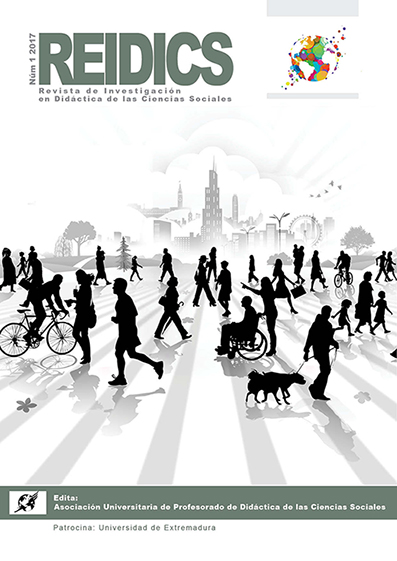Strategies for problem-based learning in teacher training. Case studies.
DOI:
https://doi.org/10.17398/2531-0968.01.132Keywords:
Problem-based learning; curriculum; social representations; curriculum projects; innovationAbstract
The review of the scientific literature on problem-based learning shows divergences in the theoretical and methodological approaches of its main authors, which have reduced this tool to the assimilation of conceptual contents from the exhaustive fulfillment of the curriculum. In this article, we defend an interpretation of the curricular framework to transform the contents into social problems, witch respond to the citizen demands of the students. The theory of social representations is the framework in which we base the work, with spontaneous ideas to know the obstacles that condition the school praxis. The results of more than 400 surveys, of active and in-service teachers, have revealed that there is a marked lack of awareness of innovative methodologies, although some examples of good practice have been pointed out. Through the experience of working for curricular project, developed during more than two decades within the Gea-Clío Project, we manifest the need to interpret and problematize the curriculum with professional ideas of innovation. With this premise we defend that teachers have to carry out a reflexive practice of their teaching practice, whose approach has been exemplified by two case studies: the understanding of the rural space to explain an alternative to the organization of the syllabus based on curricular programs and decision making on the evaluation of the students in the case of the Tests of Access to the University of History of Spain of 2nd year of high school.
Downloads
Published
Issue
Section
License
Copyright (c) 2024 Diego García Monteagudo, Carlos Fuster García, Xosé Manuel Souto González

This work is licensed under a Creative Commons Attribution-NonCommercial-ShareAlike 4.0 International License.
Aquellos autores/as que tengan publicaciones con esta revista, aceptan los términos siguientes:
- Los autores/as conservarán sus derechos de autoría y garantizarán a la revista el derecho de primera publicación de su obra, el cual estará simultáneamente sujeto a la Licencia de reconocimiento de Creative Commons 4.0 BY-NC-SA que permite a terceros compartir la obra siempre que se indique su autor y su primera publicación en esta revista.
- Los autores/as podrán adoptar otros acuerdos de licencia no exclusiva de distribución de la versión de la obra publicada (p. ej.: depositarla en un archivo telemático institucional o publicarla en un volumen monográfico) siempre que se indique la publicación inicial en esta revista.
- Se permite y recomienda a los autores/as difundir su obra a través de Internet (p. ej.: en archivos telemáticos institucionales o en su página web) antes y durante el proceso de envío, lo cual puede producir intercambios interesantes y aumentar las citas de la obra publicada. (Véase El efecto del acceso abierto).
- Los autores y autoras han respetado la política de autoría de esta revista.







